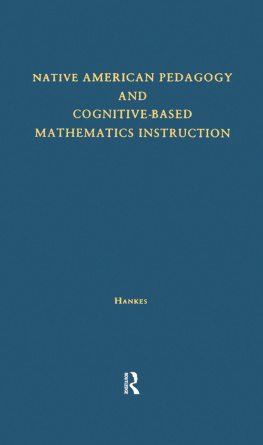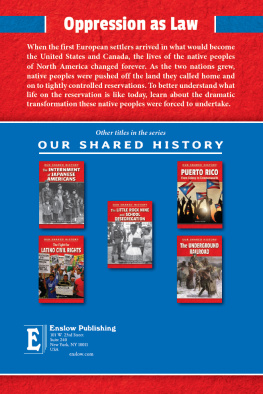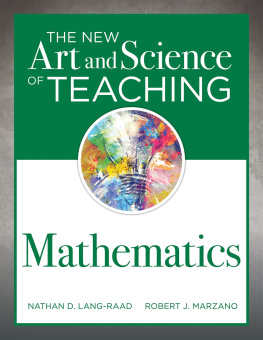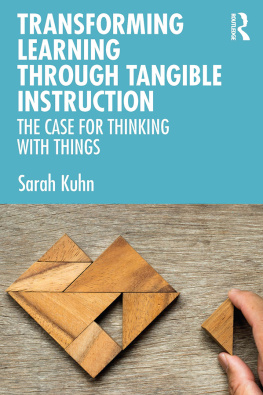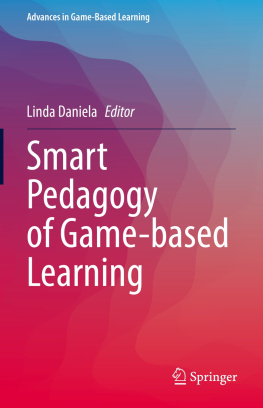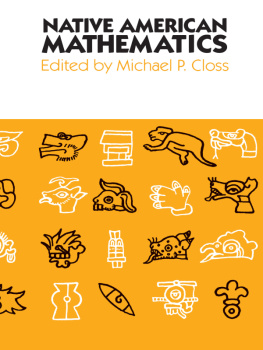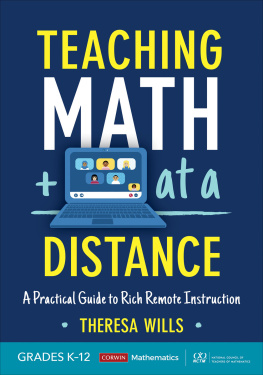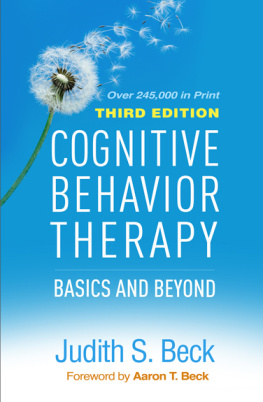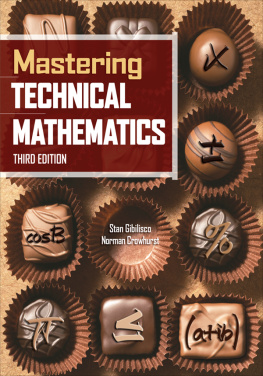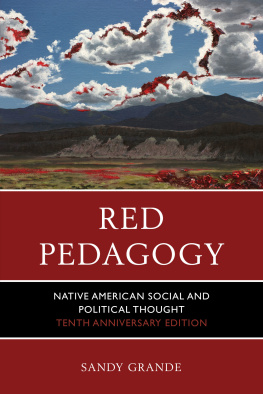First published 1998 by Garland Publishing, Inc.
Published 2019 by Routledge
2 Park Square, Milton Park, Abingdon, Oxon OX14 4RN
52 Vanderbilt Avenue, New York, NY 10017
Routledge is an imprint of the Taylor & Francis Group, an informa business
Copyright 1998 Judith E. Hankes
All rights reserved. No part of this book may be reprinted or reproduced or utilised in any form or by any electronic, mechanical, or other means, now known or hereafter invented, including photocopying and recording, or in any information storage or retrieval system, without permission in writing from the publishers.
Notice:
Product or corporate names may be trademarks or registered trademarks, and are used only for identification and explanation without intent to infringe.
Library of Congress Cataloging-in-Publication Data
Hankes, Judith E.
Native American pedagogy and cognitive-based mathematics instruction / Judith E. Hankes.
p. cm. (Native Americans)
Describes a Ph.D. dissertation study completed in 1994 at the Oneida National Elementary School in Oneida, Wisconsin Introd.
Includes bibliographical references and index.
ISBN 0-8153-3113-4 (alk. paper)
1. Oneida childrenEducation (Preschool)Wisconsin Oneida County. 2. MathematicsStudy and teaching (Preschool)WisconsinOneida County. 3. Oneida philosophy WisconsinOneida County. 4. Oneida IndiansSocial life and customs. 5. Cognitive styles in childrenWisconsinOneida County. 6. Cognition and cultureOneida County. I. Title. II. Series: Native Americans (Garland Publishing, Inc.)
E99.045H35 1998
372.7019dc21
98-44968
ISBN 13: 978-0-8153-3113-1 (hbk)
This book describes a Ph.D. dissertation study completed in 1994 at the Oneida Nation Elementary School in Oneida, Wisconsin. The study compares traditional Native American pedagogy with that of Cognitively Guided Instruction (CGI) and investigates the influence of CGI on the mathematical problem solving ability of Oneida Indian kindergarten children.
The first step in completing the study was to identify the methods of instruction common in Native American teaching. Having proposed that there is a generalized Native way of teaching, it is important to recognize that Native Americans represent more than 300 different tribes (Butterfield 1963; Stuck in the Horizon 1989) and that each tribal group possesses varying linguistic, cultural, social, political and economic dimensions. Consideration of such diversity forces one to be cautious when overgeneralizing across tribes (Brasswood & Szaraniec 1983), however, many studies point out that there are notable consistencies among Native peoples (Tharp & Yamauchi 1994; Cahape & Howley 1992; Indian Nations at Risk Task Force 1992). Specifically informal and formal teaching practices, shared by Native American teachers across tribes. These practices comprise what is referred to within this study as Native American pedagogy.
The second step of the study was determining whether the generalized Native American pedagogy corresponded with traditional Oneida instruction. This involved interviewing five educators from the Oneida community. An important realization evolved out of this processthe Oneida educators had not considered what a Native American way of teaching might be and whether Oneida instruction would correspond with that way. This realization prompted an investigation into the cultural values that informed communication patterns within a traditional Oneida classroom.
Determination of whether Native American pedagogy and Cognitively Guided Instruction were compatible was dependent upon one teachers knowledge of both approaches: an Oneida kindergarten teacher, after participating in two thirty-hour CGI workshops, implemented the approach in her classroom. This teacher, having reflected on how Oneida culture values influenced her teaching and how her teaching corresponded with Native American methods, identified the commonalties between Oneida/Native American pedagogy and Cognitively Guided Instruction as she understood them.
The final stage of the study involved documenting the mathematical problem-solving ability of Oneida kindergartners taught with Cognitively Guided Instruction.
Three research themes focused the study: first, determining the impact of Oneida culture values on traditional Oneida instruction and the relationship of those values to a generalized Indian way of teaching or Native American pedagogy; second, determining an Oneida kindergarten teachers views regarding the cultural compatibility of Cognitively Guided Instruction; and third, determining the problem solving ability of Oneida kindergarten students taught with Cognitively Guided Instruction. Three research questions facilitated the investigation of these themes:
What cultural values influence Oneida instruction, and do those values correspond with the values, which underlie Native American pedagogy as outlined in the literature review?
Did the participating kindergarten teacher believe that Cognitively Guided Instruction is a culturally compatible way of teaching mathematics to Oneida/Native American children? If so, why?
How did Cognitively Guided Instruction influence the mathematical problem solving ability of the Oneida kindergarten students in this study?
The Researchers Paradigm
A paradigm is a world view, a general perspective, and a way of breaking down the complexity of the real world. As such, paradigms are deeply imbedded in the socialization of adherents and practitioners, telling them what is important, what is reasonable. (Patton 1975, 9)
Discourses can never be neutral or value-free; discourses always reflect ideologiessystems of values, beliefs, and social practices. (Fairclough 1989; Foucoult 1972; Gee 1990)
Recognizing that paradigms are socially constructed and that discourses are subjective, informed by the lived experiences of each speaker or writer, it is important that I provide information about myself to enable the reader to better understand and assess the ideas, findings, and proposals advanced within this study.
Foremost, I must situate myself as a creationist, a believer in a Higher Power. Related to this belief is my cognitive constructivist view of the learner, a view that recognizes the cognitive capabilities and neurological likenesses of all humans (Fosnot 1989; Gardner 1985; Magoon 1977; Von Glaserfield 1989). But then, I am also a social constructionist, an individual who believes that though humans are cognitively more alike than unalike, lived experiences and social interactions determine who we are and what we value (Gergen 1985; Shotter 1993; Vygotsky 1978, 1986, 1987; Wertch 1984, 1985). Finally, I identify myself as an ethical pragmatist, one who values equity and works pragmatically to achieve it.
Cognitive constructivist, social constructionist, ethical pragmatist, labels discursively produced by academics, situates me as an academician. However, prior to acquiring the meaning of such labels and achieving such status, a life rich with varied social interactions produced the personal values, which underscore these labels. In order to understand why I elect to claim such values, you must know about my life. So, I have chosen to include a short personal narrative. The narrative relates specifically to mathematics and provides insight into why I elected to investigate culturally compatible mathematics instruction for Native American children.


